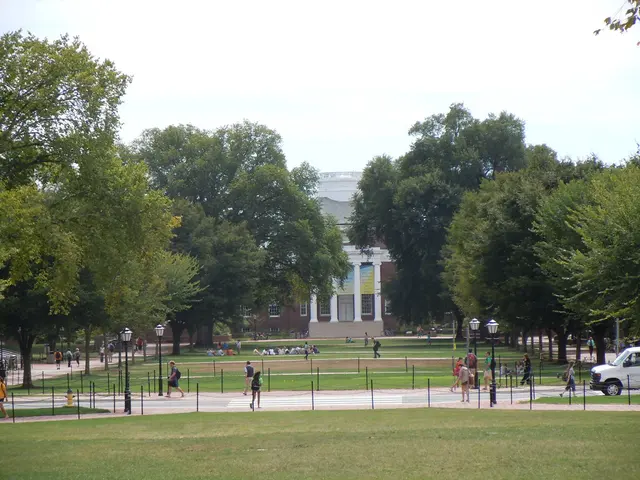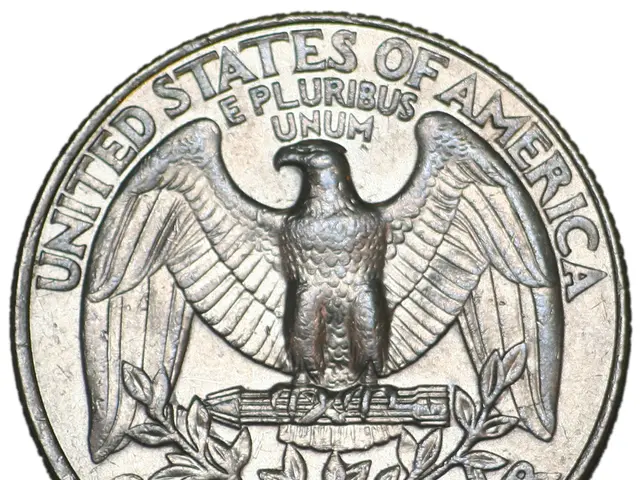Thailand Commits to Trade and Deepens Ties with China and Russia
Thailand maintains its allegiance to the principles upheld by the World Trade Organization (WTO)
Thailand maintains its dedication to free trade principles under the World Trade Organization (WTO) and is working towards joint solutions amidst the current shaky global trade environment, as stated by Foreign Affairs Minister Maris Sangiampongsa.
According to Mr. Maris, this stance was unequivocally conveyed in meetings with Chinese Foreign Minister Wang Yi and Russian Foreign Minister Sergey Lavrov at the recent BRICS Foreign Ministers' meeting in Brazil.
Key discussions centered around the global trade situation, the multilateral trading system, and finding constructive resolutions were highlighted by Mr. Maris. He affirmed that Thailand remains faithful to the WTO's principles and aims to work collaboratively with all parties to find positive solutions.
Besides strengthening bonds with these powerhouse nations, Thailand also expressed readiness to bolster cooperation in various areas with China. These topics encompassed collaborating in combating transnational crime, promoting trade and investment, transportation, and amplifying regional partnerships like Mekong-Lancang Cooperation (MLC).
Similarly, Russia-Thailand discussions revolved around expanding tourism and pursuing a free trade agreement between Thailand and the Eurasia region.
In a groundbreaking move, this Brazil event marked Thailand's first official participation in a BRICS meeting as a partner country, offering it an invaluable chance to contribute to forging cooperation among developing nations.
BRICS is a powerful bloc of major emerging economies, consisting of Brazil, Russia, India, China, and South Africa, as well as the United Arab Emirates, Iran, Egypt, and Ethiopia as full members. Following an invitation by Russian President Vladimir Putin during Russia's 2024 chairmanship, Thailand joined as one of 13 official Brics new partner countries on January 1st.
Thailand-China Cooperation:
In high-level conversations, Thailand and China emphasized the need to deepen economic ties, with a focus on harmonizing strategies within multilateral frameworks like BRICS and fostering bilateral economic partnerships[1][4]. Although explicit agreements from the BRICS Foreign Ministers' meeting in Brazil are not available in current reports, Thailand reiterated its commitment to WTO principles while advocating for stronger connections with China to address risks from global trade fluctuations[4].
Thailand-Russia Initiatives:
During talks with Russian Foreign Minister Sergey Lavrov, Thailand prioritized progress on a Free Trade Agreement (FTA) with the Eurasian Economic Union (EAEU) led by Russia[1][2]. This FTA would expand market access for Thai exports (e.g., agriculture, electronics) to Russia and its EAEU partners (Belarus, Kazakhstan, etc.), lowering dependence on Western markets under U.S. tariff pressures[2][3].
Strategic Context:
Thailand's overtures align with its broader strategy to diversify trade partnerships through FTAs, including recent agreements with the European Free Trade Association (EFTA) and ongoing negotiations with the EU[5]. Despite not being a member of BRICS, Thailand's engagement with China and Russia at BRICS-related forums supports its objective of securing alternative markets and stabilizing trade amid U.S.-initiated tariff escalations[3][5].
- Thailand is committed to deepening its economic ties with China, focusing on synchronizing strategies within multilateral frameworks like BRICS and fostering bilateral economic partnerships.
- In discussions with Russian Foreign Minister Sergey Lavrov, Thailand prioritized the advancement of a Free Trade Agreement (FTA) with the Eurasian Economic Union (EAEU), led by Russia.
- A key area Thailand aims to strengthen cooperation with China is in the transport sector, as part of regional partnerships like the Mekong-Lancang Cooperation (MLC).
- Besides the economic aspect, Thailand's engagements with China and Russia are strategic, as they help diversify trade partnerships, an essential step towards securing alternative markets and stabilizing trade amid U.S.-initiated tariff escalations.




